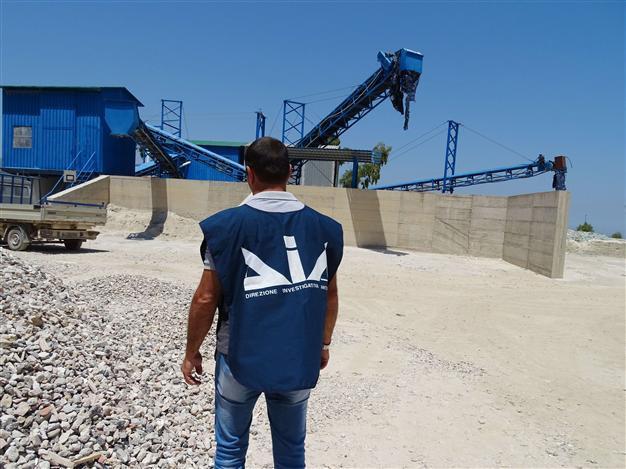Italy struggles with mountain of seized mafia assets
CATANIA – Agence France-Presse

AFP photo
Italy’s battle against the mafia has provoked an unusual problem for the government - the headache of managing a staggering portfolio of assets and cash seized from mobsters.
Officials control by some estimates about 3,000 companies, 12,000 properties and two billion euros in bank deposits and other assets from organized crime outfits, leaving the government with hundreds of extra employees and properties not seen very favorably by banks.
“In Italy it is more difficult to manage the property seized from the mafia than it is to confiscate it,” Michelangelo Patane, a prosecutor in Sicily, said.
Authorities announced a new seizure on July 8 of 1.6 billion euros ($1.75 billion) in alleged mafia property, that included dozens of businesses as well as some 700 houses, villas and buildings.
Seized mafia assets are such an issue in Italy the government created in 2010 a national agency, the ANSBC, to manage the mountain of property in hopes of better handling it.
“We have real estate holdings, companies and other seized mafia assets that have grown more than expected,” ANSBC head Umberto Postiglione told AFP.
One of the properties it manages is a sprawling and spectacular beach resort in the Sicilian town of Catania. Its gardens are local historic landmarks and the resort holds some 300 beach huts for tourists, but banks are left nervous by its past as a mafia-owned property.
“The banks slow us down, they don’t trust confiscated businesses and if we ask for a loan they refuse to give us one,” said Salvatore Piggioli, who works for the company that runs the site.
It is no surprise the government is drowning in mafia assets because it possesses considerable powers to seize them.
Italian law allows authorities to carry out preventative seizures when mafia involvement is suspected, said accountant Giuseppe Giuffrida, an expert in managing seized mafia assets.
He said an official fund for seized assets like bank deposits and stocks currently holds some two billion euros.
Determination of whether the assets are ill-gotten gains can come swiftly. Authorities simply look to see if the values of the property matches up with the owner’s publicly declared income.
